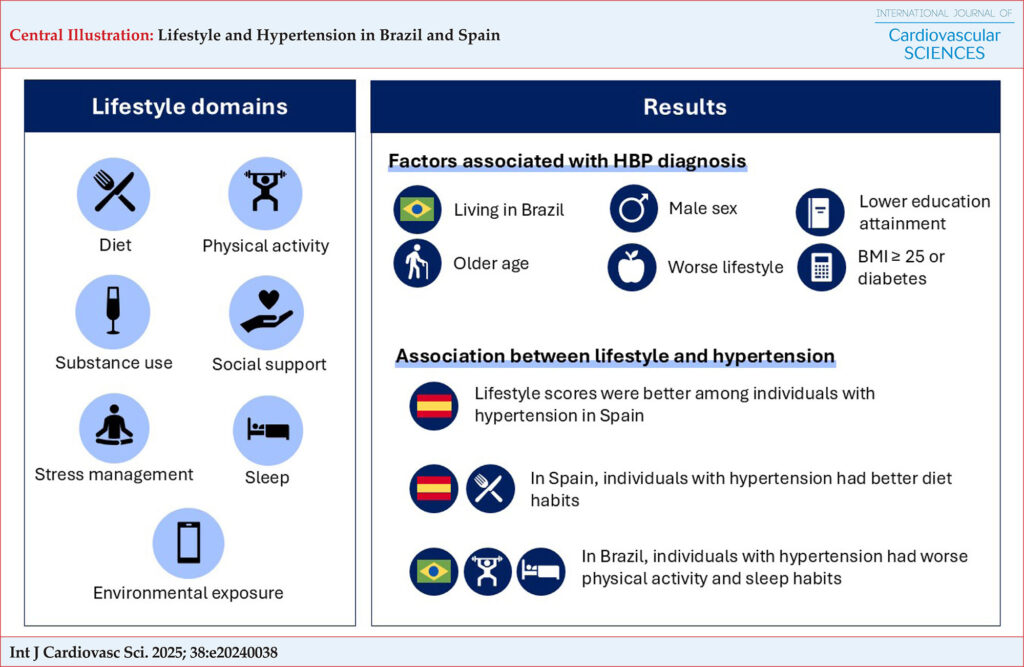International Journal of Cardiovascular Sciences. 13/mar/2025;38:e20240038.
Lifestyle and Hypertension in Brazil and Spain
Abstract
Background:
Hypertension is the main risk factor for cardiovascular mortality worldwide. Lifestyle medicine (LM) assesses health through seven domains (diet, physical activity, substance use, sleep, social support, stress management, and environmental exposure), which also include risk factors for hypertension.
Purpose:
To evaluate the association between lifestyle and hypertension in Brazil and Spain.
Methods:
Secondary analysis of data from two web surveys conducted in 2020 in Brazil and Spain, which assessed lifestyle through a multidimensional scale. We enrolled 5224 individuals of both genders, aged > 18 years, living in Brazil and Spain, and with Internet access. The main outcome was a self-reported hypertension diagnosis. We calculated the absolute and relative frequency of the independent variables and evaluated the factors associated with hypertension in logistic regression models.
Results:
76.2% of participants were women, 57.9% were > 42 years old, and 66.9% had finished higher education. Over the last 12 months, 19.6% of Brazilians and 9.2% of Spanish reported diagnosis/treatment of hypertension. Male and older groups living in Brazil, with lower education and worse lifestyles, were more likely to report hypertension. General lifestyle score was not associated with hypertension in Brazil, while hypertensive individuals had better scores in Spain (p < 0.001). Hypertensive individuals had worse lifestyle scores in physical activity (p < 0.05) and sleep (p < 0.05) in Brazil and better diet scores in Spain (p < 0.001). Environmental exposure was better among hypertensive individuals in both countries (p < 0.001). Our results point to cultural and socioeconomic differences between both countries.
Conclusion:
LM is an important strategy for the prevention/treatment of chronic diseases such as hypertension
Palavras-chave: Life Style; COVID-19; Hypertension; Diet
292

